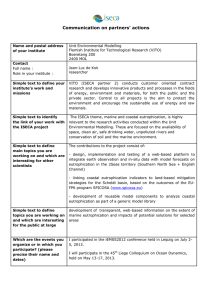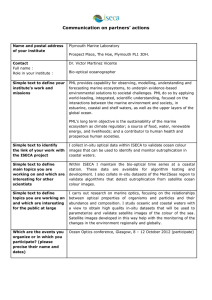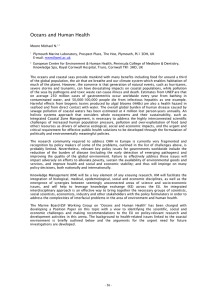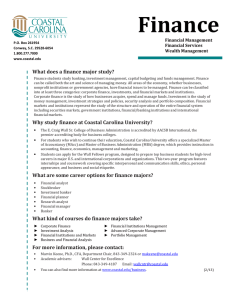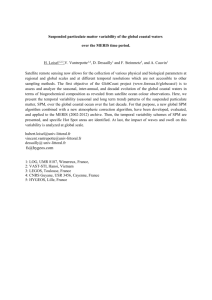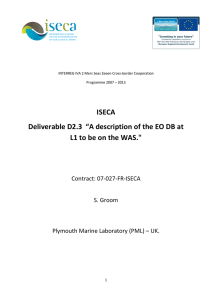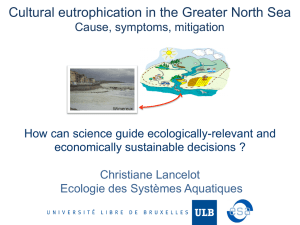Objectives : 1- Scientific
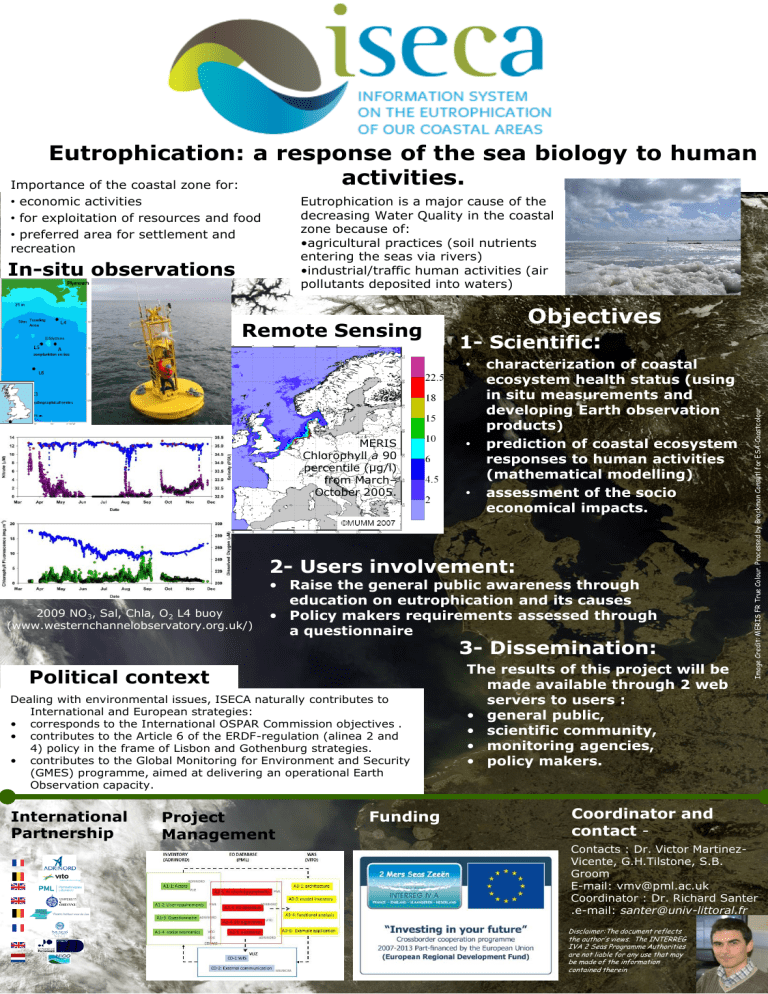
Eutrophication: a response of the sea biology to human
Importance of the coastal zone for: activities.
• economic activities
• for exploitation of resources and food
• preferred area for settlement and recreation
In-situ observations
Eutrophication is a major cause of the decreasing Water Quality in the coastal zone because of:
•agricultural practices (soil nutrients entering the seas via rivers)
•industrial/traffic human activities (air pollutants deposited into waters)
Remote Sensing
MERIS
Chlorophyll a 90 percentile (μg/l) from March–
October 2005.
Objectives
1- Scientific :
• characterization of coastal ecosystem health status (using in situ measurements and developing Earth observation products)
• prediction of coastal ecosystem responses to human activities
(mathematical modelling)
• assessment of the socio economical impacts.
2009 NO
3
, Sal, Chla, O
2
L4 buoy
(www.westernchannelobservatory.org.uk/)
2- Users involvement:
• Raise the general public awareness through education on eutrophication and its causes
• Policy makers requirements assessed through a questionnaire
3- Dissemination:
Political context
Dealing with environmental issues, ISECA naturally contributes to
International and European strategies:
• corresponds to the International OSPAR Commission objectives .
• contributes to the Article 6 of the ERDF-regulation (alinea 2 and
4) policy in the frame of Lisbon and Gothenburg strategies.
• contributes to the Global Monitoring for Environment and Security
(GMES) programme, aimed at delivering an operational Earth
Observation capacity.
The results of this project will be made available through 2 web servers to users :
• general public,
• scientific community,
• monitoring agencies,
• policy makers.
International
Partnership
Association pour le Développement de la Recherche et de l’Innovation dans le Nord-Pas
(ADRINORD, Lille) de Calais voor Vlaamse instelling technologisch onderzoek
(VITO, Mol)
Plymouth Marine Laboratory
(PML, Plymouth)
University of Greenwich
Vlaams Instituut voor de Zee
( VMM, Oostende)
Centre NAUSICAA
(Boulogne-sur-Mer)
Centre for the Economics and
Management of Aquatic Resources
(CEMARE, University of
Portsmouth)
Institut Néerlandais de l’Ecologie
(NIOO, Yerseke)
Project
Management
Funding Coordinator and contact -
Contacts : Dr. Victor Martinez-
Vicente, G.H.Tilstone, S.B.
Groom
E-mail: vmv@pml.ac.uk
Coordinator : Dr. Richard Santer
.e-mail: santer@univ-littoral.fr
Disclaimer:The document reflects the author’s views. The INTERREG
IVA 2 Seas Programme Authorities are not liable for any use that may be made of the information contained therein
Associaton for the Developmet of Research and
Innovation in the Nord-Pas de Calais
Air quality monitoring networks for Lille and Dunkirk zones
Environmental flemmish
Agency
Association for Prevention of
Atmospheric Pollution
VLIZ
